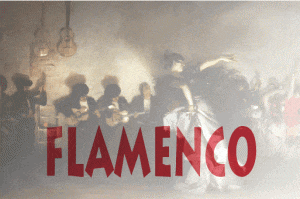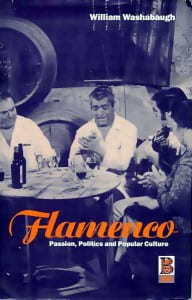Flamenco Music and National Identity in Spain (2012) explores the efforts of the current government in southern Spain to establish flamenco music as a significant patrimonial symbol and marker of cultural identity. Further, it aims to demonstrate that these Andalusian efforts form part of the ambitious project of rethinking the nation-state of Spain, and of reconsidering the nature of national identity.
A salient theme in this book is that the development of notions of style and identity are mediated by social institutions. Specifically, the book documents the development of flamenco’s musical style by tracing the genre’s development between 1880 and 1980, and by demonstrating the manner in which the now conventional characterization of the flamenco style was mediated by krausist, modernist, and journalist institutions. Just as importantly, it identifies two recent institutional forces, audio recording and cinema, that promote a concept of musical style that sharply contrasts with the conventional notion. By emphasizing the importance of forward-looking notions of style and identity, Flamenco Music and National Identity in Spain makes a strong case for advancing the Spanish experiment in nation-building, but also for re-thinking nationalism and cultural identity on a global scale.
ISBN 978-1-4094-3484-9, Ashgate Publishing
Flamenco refers to the popular musical style that emerged around the mid-1800s in southern Spain, especially in and around the cities of Seville, Cádiz, Jerez, and Málaga. Flamenco artistry involves various forms (palos) of rough-cut poetry sung solo to percussive guitar accompaniment, often in association with dance.
Other Books by Washabaugh about Flamenco
Flamenco: Passion, Politics and Popular Culture. (1996) Berg Publishers, Oxford, England (available in the U.S. from NYU Press). This set of essays explores the ideological undercurrents of flamenco music.
Available in Spanish and Turkish:
—Flamenco: Pasión, política y cultural popular, Prólogo de Enrique Folch González, Traducción de Verónica Canales y Enrique Folch González, 2005, Ediciones Paidós Ibérica, Barcelona,
—Flamenko, Tutku, Politika ve Popüler Kültür, Sanat v Kuram, Ayriniti Yayinlari, 2006, http: ayrintiyayinlari.com.tr, Dizdariye Çesmesi Sk.
The Passion of Music and Dance: The Body, Gender and Sexuality. (1998) Berg Pubishers, Oxford, England. This collection of essays by Washabaugh and other scholars considers the politics of the flamenco, tango, rebetika, and American popular music and dance.


